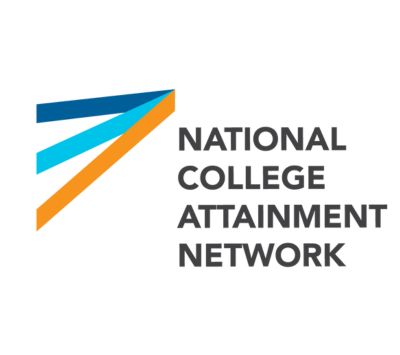In the Media
New Guide, Research Both Explore Universal FAFSA Policies
May 3, 2023
By Bill DeBaun
-(18).jpg)
With Kansas and Indiana becoming the 7th and 8th states, respectively, to require completion (or waiver) of the Free Application for Federal Student Aid (FAFSA) in order to graduate high school, it’s clear that states continue to be interested in universal FAFSA as a policy tool to raise students’ awareness of financial aid. Although research and empirical evidence about these policies’ effects remain developing, two new resources aim to bolster the field’s understanding.
uAspire, a National College Attainment Network (NCAN) member and partner with our universal FAFSA state policy working group, recently published “Opportunities & Challenges of Universal FAFSA.” The guide, authored by Mireya Sandoval with contributions from Megan Lehr and Brendan Williams, is an easy-to-absorb, state-facing resource that identifies, “opportunities created for students, the challenges of implementation, and best practices to inform states seeking to adopt an equitable and effective universal FAFSA policy.”
uAspire, “collected 19 survey responses and interviewed 19 practitioners from the five states implementing this policy,” to inform the resource. Among the opportunities presented by universal FAFSA are students realizing that college is a viable option, starting financial aid conversations earlier, and understanding that financial aid can also fund technical and certificate programs along with two- and four-year pathways. Each of these “opportunities” also comes with a best practice.
On the other side of the coin are the “challenges” like communicating a universal FAFSA policy to practitioners, students, and families and inconsistent opt-out processes across states; uAspire helpfully provides recommendations for working around these.
The resource is a good one for states with these policies, for understanding how and where to improve them, and for states considering them, so that their nascent policies get off on the right foot.
Regular readers know that NCAN endorses universal FAFSA with supports and has identified it as a state policy priority and one of eight college and career readiness policy levers that are a focus of NCAN’s ongoing systems change work.
NCAN’s recommendations to states who are considering universal FAFSA include:
- Require FAFSA completion for high school graduation through legislative or other policy vehicles.
- Include a robust opt-out system for students who are unable to access parental financial information, have undocumented parents, or whose parents allow them to abstain.
- Provide (at minimum) one full FAFSA cycle from the bill passing, or the item being administratively added to a list of requirements before the actual requirement takes effect.
- Make the change administratively, if high school graduation requirements do not live in statute.
- If not already in place, build and provide robust training and support through school counselors and/or college access advisers to ensure students are helped through the process.
- Provide regular data-sharing on completion to high schools and community-based organizations to allow for better-targeted FAFSA completion efforts.
uAspire’s isn’t the only new universal FAFSA-related resource. Texas Tech’s Dr. Sie Won Kim recently released “How a Mandatory FAFSA Completion Policy in Texas Could Improve College Access” for the Urban Institute. “Did” is maybe a better verb for the title, but, that quibble aside, the brief is very valuable for its disaggregated look at universal FAFSA’s impacts on high schools in the 2021-22 academic year. In particular, the brief shows how universal FAFSA helped to close FAFSA completion gaps among high schools. Specifically: “schools with the largest shares of students living in poverty showed the largest completion rate increases” and “schools with the highest shares of Black and Hispanic students have the highest submission and completion rates before and after the policy implementation.” To be clear: these results conform with our expectations because we know from previous research that students in higher-poverty school districts are less likely to apply for financial aid, and so these districts also have the most room to grow when a policy requires FAFSA completion.
The big ticket ask from policymakers and practitioners alike remains whether or not these policies increase postsecondary outcomes like enrollment, persistence, and completion, but enrollment data aren’t available in Texas yet. Still, the brief adds to the body of understanding around this increasingly type of policy.
Per usual, NCAN will continue to keep you updated with all of the latest college access and attainment developments, universal FAFSA-related and otherwise. Stay tuned!